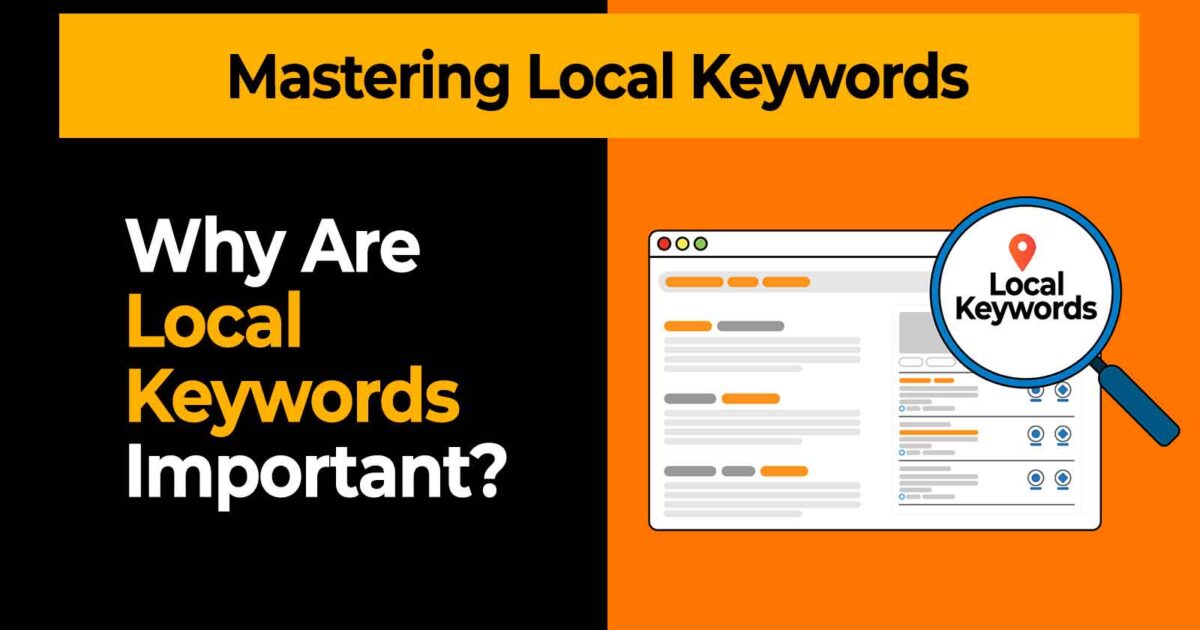
In today’s digital-first world, standing out in local markets requires a well-crafted strategy. Optimizing for local keywords isn’t just about increasing visibility; it’s about connecting with customers where it matters most.
This guide unveils the most effective tactics to harness the power of local SEO, driving traffic, boosting conversions, and achieving long-term growth for your business.
Understanding Local Keywords: A Critical SEO Foundation
What are Local Keywords?
Local keywords are search terms used by customers in a specific area to find nearby businesses, products, or services. These terms typically include location-specific phrases like city names, neighborhoods, or landmarks. For example:
- “Best pizza in Brooklyn”
- “Affordable car repair in Denver”
By integrating local keywords into your strategy, you’re ensuring that your business is visible to customers with strong purchasing intent.
Why Are Local Keywords Important?
Local keywords play a vital role in connecting businesses to their communities. Effective targeting allows you to:
- Reach consumers actively looking for local services.
- Appear in “near me” and geo-specific searches.
- Gain an edge over competitors in local rankings.
- Build trust and familiarity with local customers.
Step-by-Step Guide to Optimizing Local Keywords
1. Conduct Local Keyword Research
Keyword research is the cornerstone of any local SEO campaign. Follow these steps:
- Identify Core Terms: Start with the main services or products your business offers. For instance:
- A coffee shop: “coffee shop,” “cappuccino,” “latte.”
- A gym: “fitness center,” “yoga classes,” “personal trainer.”
- Use Keyword Modifiers: Add descriptors to your core terms to make them more specific:
- “Best coffee shop near me”
- “Affordable yoga classes in [city]”
- Incorporate Location Keywords: Add cities, neighborhoods, or landmarks. Example:
- “Cozy coffee shop in Seattle”
- Leverage Tools: Utilize platforms like Google Keyword Planner, Ahrefs, SEMrush, or Moz to gather data on search volumes, trends, and keyword difficulty.
- Analyze Competitors: Look at what keywords local competitors rank for by analyzing their websites and Google My Business (GMB) profiles.
2. Optimize On-Page Content
Your website should seamlessly integrate local keywords into its content. Here’s how:
- Headings and Subheadings: Include keywords in your H1, H2, and H3 tags for better SEO.
- Body Content: Naturally weave keywords into product descriptions, service pages, and blogs.
- Meta Tags:
- Titles: “Top Plumbers in Chicago | Reliable & Affordable Services”
- Descriptions: “Need plumbing services in Chicago? Call [Your Business Name] today!”
- Alt Text: Use local keywords in image descriptions to enhance visibility in image searches.
3. Enhance Your Google My Business Profile
A robust GMB profile is essential for local SEO success:
- Include accurate and up-to-date NAP (Name, Address, Phone Number) details.
- Add local keywords to your business description.
- Encourage customers to leave positive reviews, as these improve your local search rankings.
- Post updates, offers, and events regularly to keep your profile active.
4. Create Locally Relevant Content
Tailor your website’s blog or resources to address local interests and queries:
- Write about events, landmarks, or news in your area.
- Examples:
- “10 Must-Visit Cafés in [City]”
- “How to Winterize Your Home in [Region]”
- Use storytelling to connect emotionally with local audiences.
5. Build Local Backlinks
Backlinks from reputable local sources signal to search engines that your business is an authority in its area:
- Partner with local bloggers, influencers, or media outlets.
- Sponsor community events or charities for mentions on their websites.
- Join local business directories such as Yelp, TripAdvisor, and niche-specific platforms.
6. Incorporate Schema Markup
Local schema markup provides search engines with structured data about your business:
- Include your business name, address, phone number, operating hours, and reviews.
- Use schema generators or plugins to add this markup to your website.
7. Optimize for Mobile
Over half of all local searches happen on mobile devices. Ensure your site is mobile-friendly:
- Use a responsive design that adapts to all screen sizes.
- Compress images and files for faster loading speeds.
- Simplify navigation to enhance user experience.
8. Leverage Reviews and Ratings
Online reviews can make or break local businesses:
- Ask satisfied customers to leave reviews on GMB, Yelp, and Facebook.
- Respond promptly to feedback to show you value customer input.
- Highlight positive reviews on your website or social media.
9. Monitor Performance and Adjust
Tracking is essential for refining your strategy:
- Use tools like Google Analytics, Search Console, and Ahrefs to monitor keyword performance.
- Pay attention to metrics like traffic, bounce rates, and conversions.
- Regularly update your keyword list to capitalize on emerging trends.
Optimizing for local keywords is an ongoing process. As markets evolve and consumer behavior shifts, so should your strategy. By consistently applying these best practices, your business will thrive in local searches, attract the right customers, and stay ahead of the competition.









